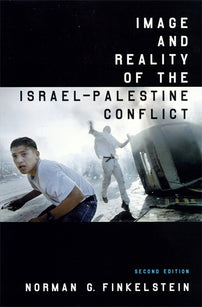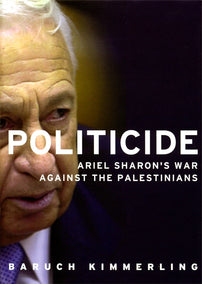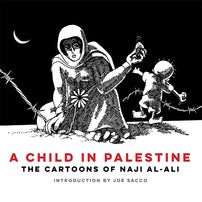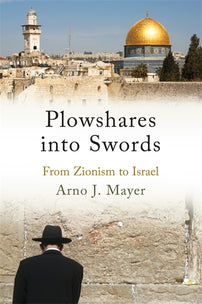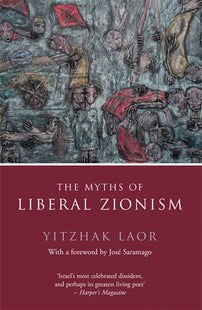When Claude Lanzmann Made Propaganda for the Israeli Army
Claude Lanzmann's five-hour documentary on the Israeli Defence Forces, Tsahal (1994), is a nauseating tribute to an army that supposedly defends Israel but has become an instrument of conquest and oppression

This article was published in Le Monde diplomatique in November 1994. Translated by David Broder.
The documentary filmmaker Claude Lanzmann loves the monumental. After his 1985 work Shoah, which stretches out over eight hours, he has just brought out a meandering new five-hour film devoted to the Israeli army, simply entitled Tsahal.
The film is essentially based on an interminable series of interviews with Israeli generals, officers, and soldiers who recount their experience and talk about their feelings. The noise of tanks, of bombs, and the original recordings of radio conversations from the army communications networks during the October 1973 war, try to create an atmosphere of combat, of war.
Among other things, the filmmaker visits an air force base and attends the final meeting of a training course for pilots. He meets up with a tank unit and chats with the soldiers, briefly shows some images of the Intifada and, toward the end of the film, hands the microphone to three Israeli intellectuals who speak about the problem of the occupied Arab territories. There is hardly any space for the Palestinians to explain their points of view. Very few of them appear throughout the whole film; and even then, they get just a few minutes to speak before they disappear again.
The film deals with a long series of subjects in no particular order. It indiscriminately shifts from a theme like fear to soldiers’ attitudes toward the enemy, the weapons of war, strategic principles, and anecdotes like the (already well-known one) told by the head of the army high command, General Ehud Barak. He tells of how, disguised as a young woman, he participated in the assault on the homes of three PLO chiefs — two soldiers and a civilian, namely the poet and PLO spokesman Kamal Nasser — all of whom were assassinated in Beirut in April 1973.
Before the press screening of the film in Paris on 25 September 1994, the director said that his intention was to present a Jewish army which, he claimed, had specific characteristics that made it unlike other armies. So what does this difference owe to? Its generals explain the difference in the film: "Our army is pure… it does not kill children. We have a conscience, values, and because of our morals there are few [Palestinian] victims," etc.
Well, the news reports contradict such a narrative. Claude Lanzmann, a competent researcher if there is one, well-able to get to the bottom of things, does not pose any embarrassing questions. He allows such claims to be made without challenging them in the slightest. In fact, he has set himself an unrealistic aim, for the Israeli army is, like any other, an instrument of power. And when an army becomes an occupying force, it will inevitably violate human rights and practice repression. There are no exceptions in this domain, and no army can escape this fate. The fact that some of the parents of Israeli soldiers were victims of the Hitlerite genocide — something which Claude Lanzmann brings up repeatedly — does not provide any extenuating circumstances for trampling on the Palestinians’ rights.
We could have expected quite a different result from the marriage of such a deft documentary-maker and such a burning subject. For Tsahal far too much resembles the propaganda films that the State of Israel produced in its early years, even though political cinema in that country has in fact evolved considerably over the decades. In the case of Shoah, Claude Lanzmann could easily have kept the film going for another two or three hours and it would still have remained just as captivating. Whereas watching Tsahal, after two hours we are already bored… when there are still three hours to go.
The War in Lebanon Did Not Take Place
During the private screening of the film in Paris, the author said that "I have avoided nothing and hidden nothing." But incredibly, the film completely fails to address the war in Lebanon, without doubt the most problematic the Israeli army has waged in its history. This was a war that shook all Israeli society, caused the death of 700 Israeli soldiers and more than 20,000 Palestinians and Lebanese, and prompted the resignation of the prime minister Menachem Begin. A war launched in June 1982 to annihilate the PLO, which is still ongoing today [in 1994], in another form, in the South Lebanon occupied by Israel. A war waged by the IDF and its collaborators in the South Lebanon Army against the Lebanese organisations directed by Tehran and the Syrian-affiliated Palestinian forces. Still today, the protagonists are all paying a high price for this war. But Lanzmann’s film passes over in silence the bombing of towns and the destruction of refugee camps in South Lebanon, the terrible siege of Beirut, and the Sabra and Shatila massacre — which, as an official inquiry recognised, was facilitated by the Israeli army. And thus Lebanon is erased from the history of the IDF even in a film named after the IDF. That would be like a film on the French army that does not mention the war in Algeria.
The film also highlights the Israeli soldiers’ devotion to their army: general Yossi Ben-Hanan relates his adventures making his way back from his holiday in Nepal when he found out that war had broken out in October 1973. This is a rather banal story, but one which shows clearly the state of mind of the Israelis on all sides. The film tells us that the citizen-soldiers felt compelled, even morally compelled, to participate in all of Israel’s wars. The numbers who resisted were insignificant or nil.
Yet the War in Lebanon revealed a new phenomenon, which greatly shocked the average Israeli: the refusal of certain soldiers (like the famous colonel Eli Geva) to obey the order to invade Beirut and even to serve in army ranks in Lebanon. These were the conscripts and reservists who belonged to the Yesh Gvoul ("There is a limit") movement. The film does not let these pacifists speak. In total, some thousands refused to serve in Lebanon and the Occupied Territories. Some 200 of these draft-resisters were sentenced to weeks or even months in jail. Claude Lanzmann was signatory of the "Manifeste des 121," published in France on 6 September 1960, which denounced the repression in Algeria and called for insubordination. But he passes over in silence the same phenomenon when it happens in Israel. These are clear double standards.
The Israeli-Palestinian war, which has endured since the occupation of the Palestinian territories in June 1967, and in which the army had to resort to repression, is evoked by images that show children throwing stones at soldiers, a curfew in Nablus, and views over Gaza. How does the occupation army fight against the Palestinian resistance? We do not see this. And if the official, army point of view can express its view at leisure, no Palestinian fighter or representative is allowed to explain the reasons for the violence of this resistance. It is like a film on the war in Algeria in which the FLN did not exist. And again, where are the images — pictures that circulated around the world — showing Israeli soldiers carrying out the orders of defence minister Rabin, who had at the beginning of the Intifada ordered his soldiers to "crush the bones" of the Palestinians? Nor is there anything on the dynamiting of houses, accompanied by the moving scenes of families surrounded by the debris of their homes. We do not see the torn-down fruit trees "which the terrorists hide behind." We do not see the expulsions and arrests (around a hundred thousand Palestinians have passed through Israel’s prisons and internment camps since the beginning of the Intifada).
On 14 June, Israeli TV broadcast a film by the Israeli Rami Levy. It bravely addressed the torture inflicted on the Palestinians, with Arabs providing their testimony. Had Claude Lanzmann wished, he could easily have made use of their statements.
Within the Israeli army there is a death squad made up of units disguised as Arabs, who summarily execute the Palestinian activists on their hit-list. The Israeli media have provided a great deal of information on this subject. But there is not a word on this in Claude Lanzmann’s documentary.
The film lists the dangers presented by the Intifada — a stone thrown hard enough can kill. But a stone thrown by a man cannot fly over sixty metres. Yet the Israeli snipers with their sights target demonstrators throwing stones from even further away than this — by hitting one or two, they disperse the demonstration. "The soldiers only kill when they are in danger," says one of the generals in the film. But among the 1,500 killed and 30,000 wounded in the Intifada, how many were really endangering soldiers’ lives? Tiny numbers.
The Allenby bridge is one of the two crossing points from Jordan. Claude Lanzmann visited this location and had a brief discussion with a Palestinian — one of the few to appear in the film — coming back from Jordan. This latter complains that the formalities on the border are very slow. We see the frisking of those who pass through. Clothes are messily heaped in the suitcases — "Sort them out back home," one of them says. We get the impression that this is all more or less normal. Yet this sequence does not express the whole reality. The filmmaker has filmed one of the most sensitive sites in the Occupied Territories. He ought to have questioned others passing through. For then he would have heard other stories.
This scene at the bridge took me back decades, to before the Intifada. It was stationed there as a reservist for twenty-four hours, and what I saw there, in Israeli army uniform, was a distressing series of constant humiliations, of cruelty, of bad treatment and malice from part of the soldiers toward the Palestinians returning home. The crossing, which lasted almost all day, started with a full-body search. Those travelling through, whether men or women, had to take off all their clothes, and the soldier frisked them, and even their genitals, with a metal detector. Everything depended on what mood the soldier was in. Several times I saw Palestinians naked in the search cabins, patiently awaiting a soldier who had decided, right in the middle of the inspection, to head off for the canteen.
The examination of their possessions was very rough. Often the soldiers would tear up coats and other clothes in order to search for detonators being carried as contraband. The women’s shoes were X-rayed, and if there was any metal in the heel (generally designed to make them stronger) the soldier would snap it in the hope of discovering a detonator… Personal objects like beauty products were destroyed. Milk bottles for babies were emptied of their contents: "There could be detonator," one soldier told me with a smile. This story of the bottles was related to an MP, who confronted the Defence Minister, who ordered that they should no longer be emptied out… Arbitrary customs taxes were imposed on new products carried by those passing through the border. One time a soldier imposed an unusually high tax on items belonging to a bourgeois woman from Ramallah. She asked "Why such a high tax?" The response was a very vulgar profanity. With a proud look, the woman left her items behind and went away with nothing. The Palestinian journalist Raimonda Tawil reported how a gold necklace bearing the word "Palestine" was confiscated at the Allenby bridge on the pretext that it was propaganda for a terrorist organisation. When complaints were made to the regional commander, he replied "Nothing can be done about this. The soldiers who serve there represent the whole people of Israel. There are cultivated and educated people among them and there are also brutes. Everyone, as you know, serves the IDF." But these latter, the "brutes," are absent from the film.
Tsahal shows production lines and tank factories. We get the sense that our filmmaker is a lover of tanks — or at least, that he loves filming them. Several scenes in the film are accompanied by their rumbling, which goes on far too long. One soldier-witness gives his opinion of his Israeli-made Merkava tank. "It’s the best in the world." "How do you know that?" "They told me so." When another speaks of his (British-made) Centurion, we get the impression that he is talking about his girlfriend… Israel, the film reminds us, developed a flourishing arms industry to overcome the embargo on weapons sales decreed by some Western powers during the two first years of the state’s existence. The United States and the United Kingdom thus shrank from selling Israel weapons, but France did supply it during the Suez campaign in 1956 and a few years after. To complete this important chapter, Lanzmann could have reminded us that the Jewish State itself sold military materiel to fascist regimes like Pinochet’s Chile, the dictatorships of Latin America, and the racists of South Africa. Arms industry officialdom has always justified these sales in terms of the need to sell to whoever is prepared to buy, for the sake of the country’s own subsistence.
The filmmaker had the privilege of attending a meeting at the end of the training for future pilots. The names of those who will be pilots, and those who will be appointed to other tasks, are read out. Among those attending there is joy, disappointment and indifference. We see a lot of religious types wearing their skullcap. A large majority are Ashkenazis. Why are so few Sephardic? All in all, not a very interesting sequence. But visiting this air force base Claude Lanzmann could at least have spoken with one of the pilots who participated in the Lebanon War, bombing the civilian population and the refugee camps. He could have seized this opportunity to ask for their testimony.
When the Occupier Forces the Occupied to Help
In fact, we see very little of the lives of the soldiers in the military camps in Israel and the Occupied Territories, while we have to sit through endless monologues on fear — a feeling we get in any army. Claude Lanzmann could have shown us the soldiers’ everyday lives, or dealt with the religious coercion in the camps, governed by the laws of the Chief Rabbinate. He could have let us hear from a soldier from the special units that take in students from the rabbinical schools, who do five years’ military service rather than three and devote two-thirds of their time studying religious disciplines. Since the rabbis in these units are all nationalists and exercise an unchallengeable moral authority, it is hard to see how the soldiers could obey orders to remove the settlers from the occupied territories, if the government did decide on such a move. Indeed, in interviews with journalists, many of these soldiers have already expressed their qualms in this regard.
Toward the end of the film, a settler wearing a skullcap speaks of the Jews’ eternal rights over Eretz Israel (the biblical name for Palestine). "The Arabs have built nothing. We will build here," he ventures. The scene takes place in the settlement where he lives in the West Bank. Not far from here, Palestinian labourers are building houses for the settlers. A moving scene. We could say that they have no other choice. The occupier forces the occupied to help. Why did Claude Lanzmann not address this subject? Sometimes the Palestinian labourers are put to work on their own land, confiscated by the army (since 1967 half of the land in the West Bank has passed into Israeli hands). But the casual viewer of this film would know nothing of this.
There are a lot of generals in Tsahal. One of them is Ariel Sharon, the retired general, former defence minister and hero of the Lebanon War. He strolls through his farm, strokes the sheep’s heads and speaks of the importance of taking the initiative in military combat. A pity that this is a monologue. Sharon was at the centre of the "war of the generals," a dispute that broke out in the middle of the war in October 1973. He was accused of refusing to carry out orders during battles, of sending across inaccurate reports, etc. The head of the high command, general David Elazar, even suggested that he should be dismissed. Sharon replied that his detractors understood nothing of strategy. But in a five-hour film that deals with the 1973 war at some length, there is no place at all for such an event within army ranks. We could ask ourselves what the aim can be of a film so lacking in credibility, and which in fact makes no new contribution. The Israelis, for their part, have surpassed the level of this kind of production.
[book-strip index="1" style="display"]